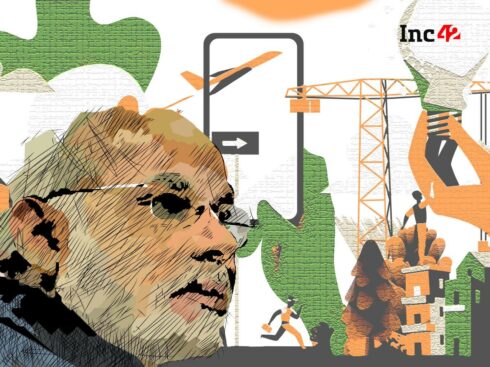PM Modi’s Startup India initiative has certainly made the terms ‘entrepreneurship’ and ‘startups’ well known across India. It has made ‘doing a startup’ cool and respectable, and has certainly highlighted entrepreneurship as a possible career option.
One of the biggest impacts this will have is that parents will be much more willing to allow their children to consider doing business instead of taking up a job. Indeed a big impact in a country where parents considered starting your own business as a riskier option, and parental pressure for taking up a stable job was considered to be a barrier to starting up.
However, my concern in the hype around startup and the Startup India initiative is the over emphasis on Venture Capital funding and funded companies, largely technology businesses, as showcase and role models. Because of this, the perception created is that to do a startup means doing a VC-fundable company, and the quantum of capital raised is being perceived as a sign of success.
It is important that we quickly change this perception and include in the definition of entrepreneurship any businesses that has the potential to be a profitable, sustainable and value creating venture, irrespective of whether it is scalable in the form & fashion that VCs prefer, and whether it is a technology company or not.
Of course technology and scale is a good thing. And perhaps all kinds of businesses can leverage some amount of technology for efficiency and scale if they want to scale. But to make technology, innovation, IP and scale as key criteria to be qualified as a startup is absurd.
So much is our perception moulded on technology as the most important criteria, that businesses that cook and deliver food to consumers call themselves food tech companies, just because they use an online platform or a mobile app to engage consumers. Would they cease to be ‘food tech’ companies if instead of a mobile app they accepted orders from consumers just over the phone? What’s wrong in someone making great food and delivering it to consumers who place an order on phone, and who discovered the brand via a printed leaflet and not an online ad?
Unless the definition of an entrepreneurial venture is shifted from VC-fundable, technology companies to ‘any legitimate business’, we will significantly lessen the impact that the Startup India initiative can potentially have in a country like India that needs lakhs of job creators.
According to Vikram Upadhyaya, Chief Mentor & Accelerator Evangelist at GHV Accelerator, “The startup ecosystem in India has to grow to become a ‘choice.’ Every Indian should ‘benefit from the “Startup India” movement. This can happen with the help of ecosystem enablers and a wider participation from the HNI’s.”
That said, the Action Plan announced does have a number of well-meaning aspects that are likely to be very helpful in growing the entrepreneurial eco-system. The declaration by the government to be less interfering is a good one. It communicated a sincere intent to create a conducive environment for businesses.
However, how these policies translate on the ground is going to be critical. A number of people from the ecosystem believe that, despite the best intent, some of these initiatives may not deliver the full impact of ‘less interference’ if there is no clarity on the definition of many of the terms of the policy document.
For example, how exactly do you define a startup? Can a furniture shop or a mithai shop call themselves a startup, and would businesses that are traditionally known a ‘Micro, Small & Medium Enterprises’ [MSME] be eligible for the benefits of the startup policy? If not, why not? (Somewhere there is a definition of startups as ‘a unit with a turnover of not more than INR 25 Cr., not more than five years old, working towards innovation driven by technology or IP’. Why should innovation, technology and IP be a key criteria for someone to start a business and create jobs? Why cannot someone making high-quality hand-made shoes and can employ a 100 people be considered a startup?)
- While some policies like self-certification, no inspection for 3-years are all welcome, they were not the impediments to starting up or scaling up. They were just minor irritants. On the other hand, faster registration and quicker closures of failed ventures will make a huge impact, as will the 3-year tax holiday for startups.
- The move to lower procurement norms for startups, enabling new and early-stage companies to bid for government projects and contracts that typically had daunting criteria of experience and revenues, is a very smart move. If this move is backed by creating an environment of ‘startup friendliness’ among PSUs and government departments, startups will have access to a larger market, that they till now could just not participate in.
- Credit guarantee for lending to startups, and the Rs.10,000 crore outlay for a fund-of-funds will certainly improve access to capital.
However, if we have to create hundreds of thousands of entrepreneurs, and not just a few hundred every year, the government should create the norms around crowd-funding and encouraging HNIs and CXOs to participate in small-ticket co-investments in startups and new ventures. Allow them to put their money and also benefit from the upside of high-quality entrepreneurial ventures.
India needs a 100,000 new entrepreneurs every year. We need to create an enabling environment and make it easier for young people to start a business. Of course push for innovation and scale, but also embrace into the startup fold individuals who start basic businesses that also have the potential to create jobs and add value to the economy.
Most of all, encourage and facilitate crowd-funding for new ventures for the startup eco-system to evolve beyond the guidelines and templates provided by just one class of capital providers – VCs.



























